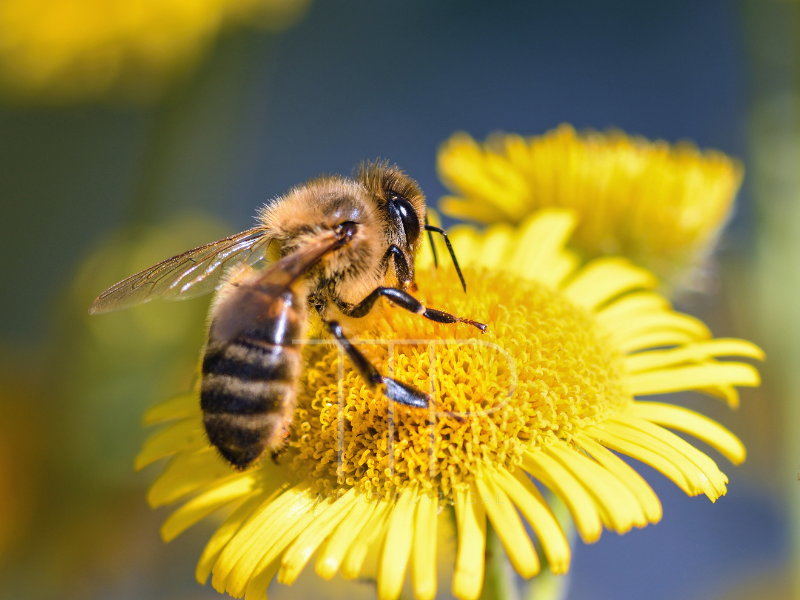The University of Coimbra (UC) is coordinating a project for the conservation and sustainability of pollinators throughout Portugal, to combat the decline of these insects.
Developed by the Faculty of Science and Technology of the University of Coimbra (FCTUC), the project, entitled PollinizAÇÃO, is coordinated by Sílvia Castro and João Loureiro, teachers and researchers at the Center for Functional Ecology (CEF) of the Department of Life Sciences (DCV).
In a press release, the UC said that the project aims to combat the decline of pollinating insects, such as bees, butterflies and flower flies, among others.
To achieve this goal – in close coordination with the Collaborative Network for the Evaluation, Conservation and Enhancement of Pollinators and Pollination (polli.NET) – the project will “identify and implement concrete conservation actions”, while at the same time “mobilizing and raising awareness in society about the vital importance of these agents in biodiversity and food production”.
"Pollinators perform a vital service in ecosystems and are crucial to nature, agriculture and human well-being. However, they are currently facing various global pressures," explains Sílvia Castro.Land use, biological invasions and climate change are “threats”
Global pressures include changes in land use, which promote the simplification and homogenization of the landscape, as well as biological invasions and climate change, which represent “a significant threat to the conservation of the functional biodiversity of ecosystems and to sustainable agricultural production”.
As part of the project, an Action Plan for the Conservation and Promotion of Pollinators and Pollination Services in Portugal will be drawn up, “guiding and pragmatic, which will provide a strategic basis for stakeholders, establishing clear guidelines to promote sustainable practices”.
"This plan is an urgent and collaborative response to the challenges that threaten pollinators," says the researcher.The PollinizAÇÃO project represents a serious commitment to biodiversity conservation, João Loureiro stresses.
"By joining forces with various entities, we intend to assess the state of the art on pollinators for the national territory, create a long-term monitoring program, build the action plan itself, and develop dissemination and outreach initiatives and citizen science on the importance of pollinators," he points out.Entities involved in the research
The project will last two years and is financed by the Environmental Fund of the Ministry of the Environment and Climate Change, involving an implementation partnership with the polli.NET Network.
It includes seconded members from the following entities:
Entidades envolvidas na investigação
O projeto terá a duração de dois anos e é financiado pelo Fundo Ambiental do Ministério do Ambiente e Alterações Climáticas, envolvendo uma parceria de execução com a Rede polli.NET.
Inclui membros destacados das seguintes entidades:
- Instituto da Conservação da Natureza e das Florestas (ICNF);
- Centre for Ecology, Evolution and Environmental Changes (cE3c);
- Faculdade de Ciências da Universidade de Lisboa;
- Linking Landscape, Environment, Agriculture And Food (LEAF) do Instituto Superior de Agronomia da Universidade de Lisboa;
- Museu de História Natural e da Ciência da Universidade do Porto;
- Associação BIOPOLIS;
- Azorean Biodiversity Group da Universidade dos Açores;
- Sociedade Portuguesa de Entomologia e Centro de Conservação das Borboletas de Portugal — Tagis.

